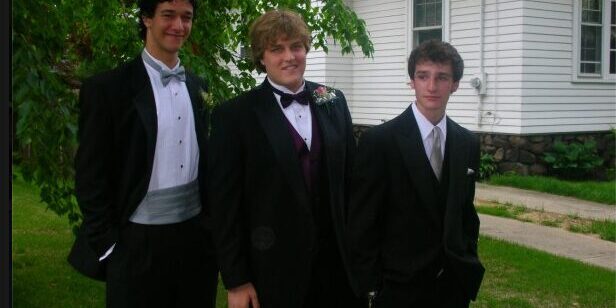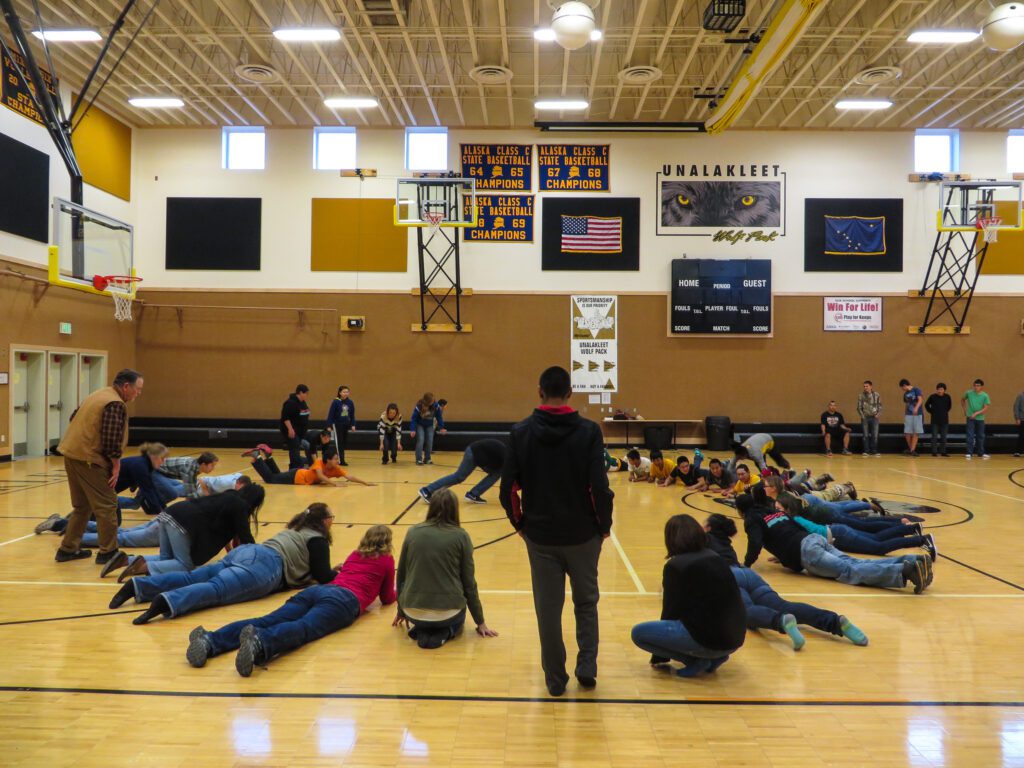As of this weekend I’ve been to four proms. Two were my junior year: one as the date of a senior at our shared high school, the other also as a date (some weeks later, I’m not sure how), at a small conservative Jewish school in Manhattan. Senior year I went with my friend Rachel, and that was my favorite prom. Then on Saturday, at 25, I went to prom in Unalakleet. It was work.
Here’s a recurrent reporting experience in the last few months: feeling much closer and more familiar with subjects than they feel back.
An example: recognizing several kids at prom from the Native Youth Olympics tournament in Gambell just two weeks earlier. And from previous trips to Unalakleet. I know their names, recall scraps of conversation, know what grade they’re in—bland landmarks that sketch enough of a map to feel like I know whom I’m talking with.
But, as I got reminded this past weekend during a three-day trip back to Unalakleet, that familiarity is presumed, and mostly one-sided. And it’s not just with teenagers, who can be written off as having underdeveloped cognitive capacities for empathy. It happens with adults, too. Bounding up exuberantly to people I’ve met once or twice before and being received with a stare of, “You’re whom?”
As I stared at a darkened school gymnasium elegantly decorated with crate-paper and twinkle-lights on Saturday night, microphone stuck into the air gathering sounds, I wondered if maybe the presumed familiarity stuff was a job hazard.
Here’s why:
News reporting means trying to make coherence with very partial information. Whether it’s a legislative bill or a crime, a multi-agency development project or community initiative, you try assembling a pot from shards. Fumbling for pieces with which to make a whole. Facts are filled out with leaps, guesses, assumptions, and an egotistical insistence you understand what’s going on when you don’t. After collecting enough shards, you cobble them together with officious language and narrative coherence.
All this requires a lot of projecting.
One way that projection plays out is presuming a proximity that’s not always reciprocal. So, if I’ve interviewed someone, then listened to their voice closely in headphones deciphering each sentence as an essential clue in a complex situation, I swell with affinity when I see the speaker again in person. Because in my head I’m thinking, “Ah-ha, hey, I know you!” Which is rarely returned. In part because the interviewee doesn’t have many tokens or ties to whatever words were spilled. They don’t leave with a record of words shared and an occupational prerogative to review it. It ends for them with the interview.
The other element at play at prom was just how awkward reporting trips can be. “What are you doing here, stranger?” is what I constantly imagine people think when they see me lurking against the wall, maybe scribbling notes, or, more suspiciously, just scanning the room trying to make sense of what’s going on. If you live in a community of ~700, are at your prom with the 16 other teenagers in your graduating class, and you see some scruffy 25-year-old stranger holding a microphone near the DJ booth, what are the possible explanations for his (my) presence? They’re not too great. “Misguided reporter” is kind of at the top of the heap; it’s all down from there.
And I seize to people I recognize because they vouch for my presence—at least a little. That presumed familiarity becomes a tool for seeming like something other than a total creep. But less strategically: it’s lonely not knowing anyone for days at a time covering events. Seizing to people recognized means, in turn, being recognized, if just a little. There is comfort in being pegged, having a role, even if it’s as vague as “the KNOM guy.”
My reason for going to Unalakleet was to learn how prom is different in a small community off the road system than the adolescent ritual practiced in the lower-48 (my experience: not very different at all). But because it was a weekend, and because I had kindly, generous hosts, and because Unalakleet is a fantastic place, it felt like almost like a personal vacation anchored to a manageable work commitment. This blurry line between the personal and occupational gets tricky to manage, in packing no less than emotionally: do I bring versatile, scrubby work clothes, or clothes I feel like myself in? Am I an observer or a participant? And on this trip, many of the same work-ingrained heuristics kicked in, but I miscategorized them, foolishly thought people knew me as a happy vacationer when my cloak of context came from work.
I hoped for recognition as “friend,” but really “employee” is the more solid designation on work trips. And with good reason. Because I’m too old to be at a prom. It would be weird to be there purely from affinity or interest, and work as an auspice is important.







